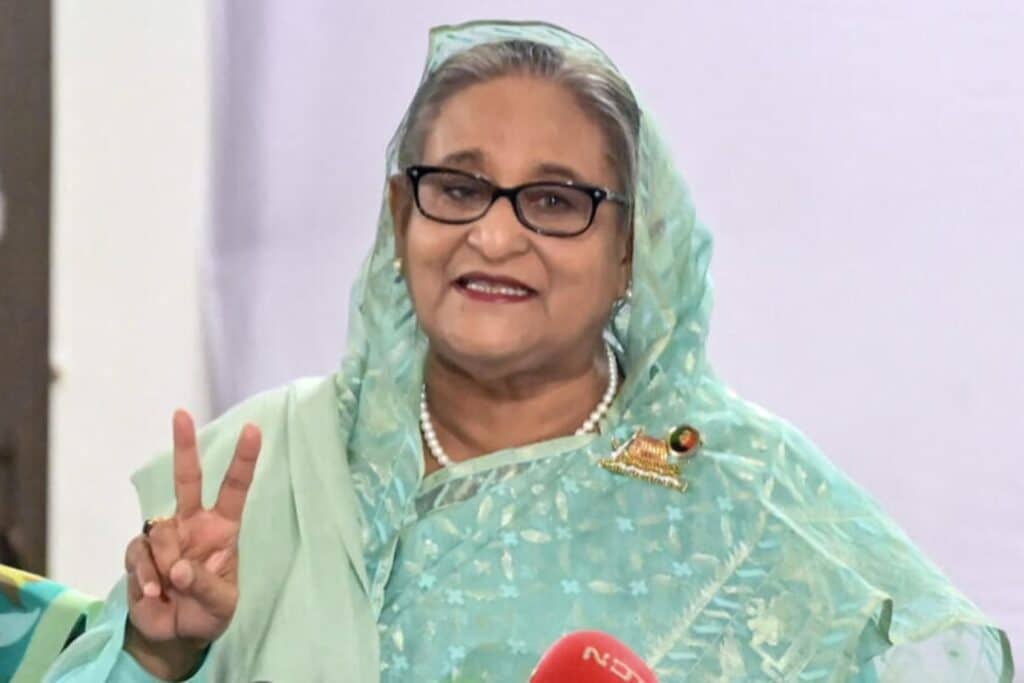Election analysts are questioning the democratic integrity of Bangladesh’s latest election, as Sheikh Hasina wins her fifth term as Prime Minister of the South Asian country.
The 76-year-old leader of the Awami League political party is the longest serving leader in Bangladesh’s history, entering her fifteenth year in power.
While the Awami League won 222 out of the 300 seats in the Bangladeshi parliament, the opposition party, the Bangladesh Nationalist Party (BNP), boycotted the polls and instead campaigned for citizens not to vote on election day.
The Election Commission reported that there was a 40 per cent turnout on voting day, however, analysts argue it was closer to 28 per cent, a figure which international media outlet Al Jazeera fact checked and verified.
Election days in previous years, notably 2018 and 2014, have been met with violent rallies protesting against Prime Minister Hasina’s Awami League and their alleged interference with election outcomes. Clashes with police during these elections saw dozens of protestors killed and thousands arrested.
This year, however, was one of the most peaceful polls in Bangladesh’s history, Al Jazeera reported, potentially due to the low voter turnout.
One person was killed in a clash on voting day, while more than 20,000 opposition, mainly BNP, activists were arrested in the last six weeks.
The Human Rights Watch declared the arrests a “violent autocratic crackdown” from Prime Minister Hasina’s Awami League government.
‘Dummy candidates’ and warnings from the West
In the lead up to the election, the US threatened to impose restrictions on visas for certain individuals accused of subverting the democratic process.
The Biden administration made the announcement in September 2023, placing pressure on the Awami League to maintain its diplomatic ties with the US, the biggest importer of Bangladesh’s garment industry.
Analysts who spoke with Al Jazeera claimed, in order to do so, the Awami League entered several “dummy candidates” into the polls.
The “dummy candidates” were allegedly former Awami League party members who failed to acquire a nomination from the party in the 2024 election.
According to the election analysts and witnesses who spoke with Al Jazeera, Awami League leadership asked these members to enter the polls as independent candidates. This was so Awami League could demonstrate a “competitive veneer” in the election, in spite of the BNP’s boycott.
Independent candidates secured 63 seats in parliament; however, many of these candidates were “dummy candidates”, according to analysts.
Gender equality in Bangladesh
Bangladesh is the only other country, alongside Iceland, where women have held the highest political position in a country for a higher number of years than men, according to the World Economic Forum’s Global Gender Gap Index.
The WEF ranks Bangladesh seventh in the world for political empowerment due to Prime Minister Hasina’s leadership. Bangladesh is one of the 26 countries where a woman is the Heads of State and/or Government.
However, gender inequality is still a problem for the majority of the country. Bangladesh scored 0.530 in the UN’s Gender Inequality Index and was ranked 131 out of 191 countries. Australia is ranked 19.
Under Prime Minister Sheikh Hasina’s 15-year leadership, several allegations of human rights abuses, accusations of corruption and government crackdown on the opposition have occurred.


